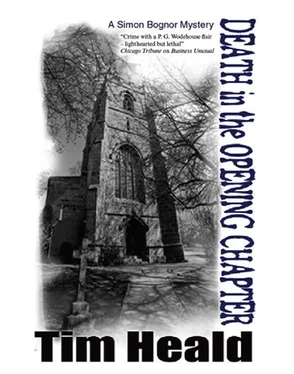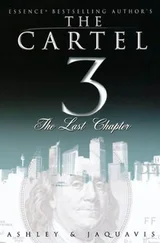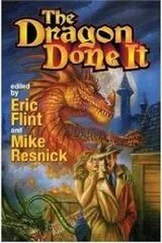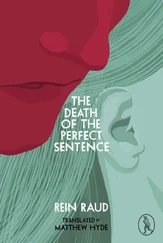Tim Heald - Death in the opening chapter
Здесь есть возможность читать онлайн «Tim Heald - Death in the opening chapter» весь текст электронной книги совершенно бесплатно (целиком полную версию без сокращений). В некоторых случаях можно слушать аудио, скачать через торрент в формате fb2 и присутствует краткое содержание. Жанр: Криминальный детектив, на английском языке. Описание произведения, (предисловие) а так же отзывы посетителей доступны на портале библиотеки ЛибКат.
- Название:Death in the opening chapter
- Автор:
- Жанр:
- Год:неизвестен
- ISBN:нет данных
- Рейтинг книги:5 / 5. Голосов: 1
-
Избранное:Добавить в избранное
- Отзывы:
-
Ваша оценка:
- 100
- 1
- 2
- 3
- 4
- 5
Death in the opening chapter: краткое содержание, описание и аннотация
Предлагаем к чтению аннотацию, описание, краткое содержание или предисловие (зависит от того, что написал сам автор книги «Death in the opening chapter»). Если вы не нашли необходимую информацию о книге — напишите в комментариях, мы постараемся отыскать её.
Death in the opening chapter — читать онлайн бесплатно полную книгу (весь текст) целиком
Ниже представлен текст книги, разбитый по страницам. Система сохранения места последней прочитанной страницы, позволяет с удобством читать онлайн бесплатно книгу «Death in the opening chapter», без необходимости каждый раз заново искать на чём Вы остановились. Поставьте закладку, и сможете в любой момент перейти на страницу, на которой закончили чтение.
Интервал:
Закладка:
‘Bit like me,’ said Allgood. ‘Effort and sweat, and all that kind of stuff, is a bit of a nuisance, as well. Don’t care for that, either.’
‘No,’ Bognor agreed, ‘I know what you mean.’ He thought for a moment. Then, as if coming to a momentous decision, he said, ‘To be absolutely honest, at the moment, I don’t have a clue who did it. I just have a feeling that someone did.’
‘Well,’ said Allgood, ‘he’s dead, isn’t he? These things don’t just happen.’
‘I don’t know so much,’ said Bognor, ‘he could have had a stroke or a heart attack. These things happen. Act of God. Takes everyone by surprise. Most of all the dear, dead departed.’
‘And if it were a stroke or a heart attack,’ said Allgood, apparently thinking out loud, ‘the death would have a certain elegant appropriateness. A bit like one’s employer suddenly firing one. I mean, if God wanted to fire one of his workers, he wouldn’t have to fire them, he’d just reel them in. Wasn’t He supposed to be a fisher of men?’
‘I hadn’t thought of it like that,’ said Bognor, truthfully. He hadn’t. ‘So, you’re telling me you didn’t kill the vicar,’ he said after a pause.
Allgood seemed to give the idea his full attention, worrying at it like a dog with one of those bone-shaped toys. Eventually, he said, ‘I don’t see that I did. I mean, why?
You need some sort of a reason. I grant you, I had the opportunity, because you wouldn’t trust the sexy little hairdresser further than you could throw her, if you see what I mean. But you need some kind of motive, and I don’t think I have one. I could probably make one up, mind. That’s what I’m paid to do.’ He brightened. ‘We could make it the main topic of my next workshop. Think of a motive for my murdering the vicar. That would be fun.’
‘Not especially,’ said Bognor. ‘In fact, you could even argue that doing so would be obstructing the course of justice.’
‘In which case, you’d be completely justified in throwing the book at me,’ said the writer, ‘except that it sounds suspiciously like a book of rules. The sort of thing someone like Archer would have put together. And you don’t believe in rule books and things like it. So you’d be unlikely to throw it at me.’
‘Touche,’ said Bognor, wondering momentarily if he should read Rubbish. Monica hadn’t ventured an opinion on it, though it was not in her nature to finish books she didn’t like. Nor to begin them without a serious recommendation from someone she trusted.
‘Interesting,’ said Allgood, as if he had only just realized that the death of the vicar raised questions that ought to be answered. Not questions that had a desperate need to be answered, especially if you felt like the squire and valued orderliness above justice. If, on the other hand, you were naturally anarchic and had a belief in right and wrong, however laid back and unconventional that might be, then the sudden death of the Reverend Fludd posed questions that could be amusing to answer. Particularly in a closed society at a time like this.
‘I’d like to see it all debated,’ said Allgood. ‘Not least because I can think of any one of a number of people who would like to see no such thing.’
‘Hmmm.’ Bognor looked at the writer with an interest which bordered on affection. He found himself in broad agreement.
‘You believe in entertainment, not in justice?’
‘Something like that,’ said Allgood. ‘Though, I don’t see that the two are necessarily exclusive. If you can have entertaining justice, I’m doubly in favour. My sense is that most people are keener on boring injustice. I’d never thought of the truth being fun, but I’m beginning to think I may be wrong. In this case, it could be rather merry to overturn a few conventional apple carts in the search for a murderer. And if you decided to pull a decent veil over the whole affair and say that the Reverend Sebastian knocked himself off while the balance of his mind was disturbed, that could be awfully dull.’
‘Neat though?’
Allgood thought some more, a process which required an effort he obviously did not enjoy.
‘I don’t think I do neat,’ he said at length. ‘Truth, justice and all that stuff strike me as a bit prissy, but neatness is really uncool.’
It was Bognor’s turn to think for a while.
Eventually he said, ‘You may just have given me a motive.’
‘How so?’ the author wanted to know.
‘You could have killed the vicar in order to cause mischief,’ he said. ‘To create disorder.’
‘Sounds a bit extreme,’ said Allgood, ‘but worth a thought. Worth a thought.’
NINETEEN
Dorcas was tearful.
This was only to be expected, but it did not make the occasion any easier. Bognor hated talking to the newly bereaved and simply didn’t buy into the widely held belief that such meetings were in any sense therapeutic. In his experience, which was considerable, they were invariably sticky, seldom very relevant and nearly always yielded unpleasant and unexpected new truths.
Dorcas was plain, which, he supposed, didn’t help, and her skin was mottled from grief and tears. She was not dressed in widow’s weeds, but in various drab colours and shapes that Bognor assumed were par for her course, and had little or nothing to do with her recent loss.
‘I’m sorry,’ he said, sitting down in a high-backed Victorian armchair. The cottage was comfortable enough, but had an air of impermanence which suggested that it went with the job and was not the vicar’s own. He presumed it was also in Sir Branwell’s gift. ‘I know this is a difficult time.’
Cliches were often the best way of dealing with such interviews. They were like the traditional form of church service. They had been around a long time and carried the patina of familiarity. They had also withstood the test of former use. They worked, which was why they were still trotted out.
‘I quite understand,’ she said. ‘You have a job to do. Would you like tea? Or something stronger? A glass of sherry, perhaps?’
Tea or sherry were also ritual comforts in such situations, and had been for almost as long as the verbal cliches. They were almost as much of a British middle-class response as Hymns Ancient and Modern or the Book of Common Prayer. They were invaluable crutches in much the same way, and owed as much to their familiarity as to any therapeutic or medicinal properties. When the going gets tough, the tough get going was a popular saying, but the British truism was that when the going gets tough, one turns to tea or sherry, hymns or prayers. Everyone to their own, but it was in this that a certain sort of true Brit found solace.
Bognor said he’d like tea, please. Black, no sugar. A habit he had picked up many years ago on a job in Sweden, involving the gift department of NK in Stockholm. Fre Roos had called him in after representations had been made by the man who handled the British side of the store’s business. Wrapping paper had played a crucial part in the business and he was helped inordinately by his command of the English language, which was even better than that of the average Swede. The average Swede spoke better English than the average Englishman, but Bognor also spoke better English than the average Englishman.
‘No,’ he said, ‘just as it comes.’ He actually preferred artisan’s tea – strong and robust, with no messing around with milk or exotic fruit. He wasn’t in the least interested in the crucial debate, which meant so much to so many of his compatriots, about whether the milk went in first or last. He couldn’t be holding with effeminate additions when it came to tea.
Dorcas poured from a capacious black teapot and he was relieved to discover that the liquid was Typhoo, scaldingly hot. He had feared he was in for tepid Earl Grey.
Читать дальшеИнтервал:
Закладка:
Похожие книги на «Death in the opening chapter»
Представляем Вашему вниманию похожие книги на «Death in the opening chapter» списком для выбора. Мы отобрали схожую по названию и смыслу литературу в надежде предоставить читателям больше вариантов отыскать новые, интересные, ещё непрочитанные произведения.
Обсуждение, отзывы о книге «Death in the opening chapter» и просто собственные мнения читателей. Оставьте ваши комментарии, напишите, что Вы думаете о произведении, его смысле или главных героях. Укажите что конкретно понравилось, а что нет, и почему Вы так считаете.












